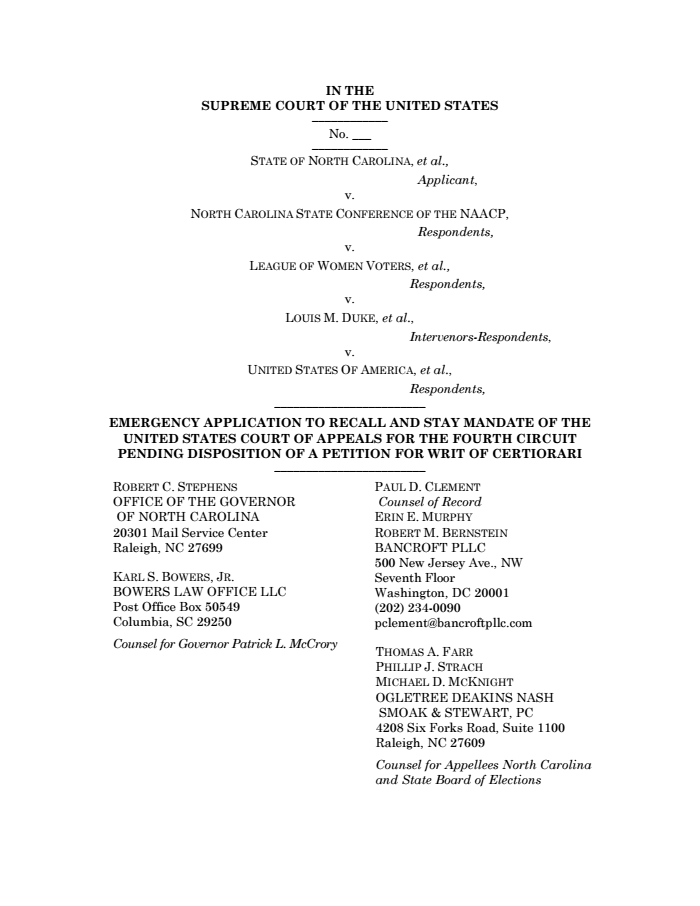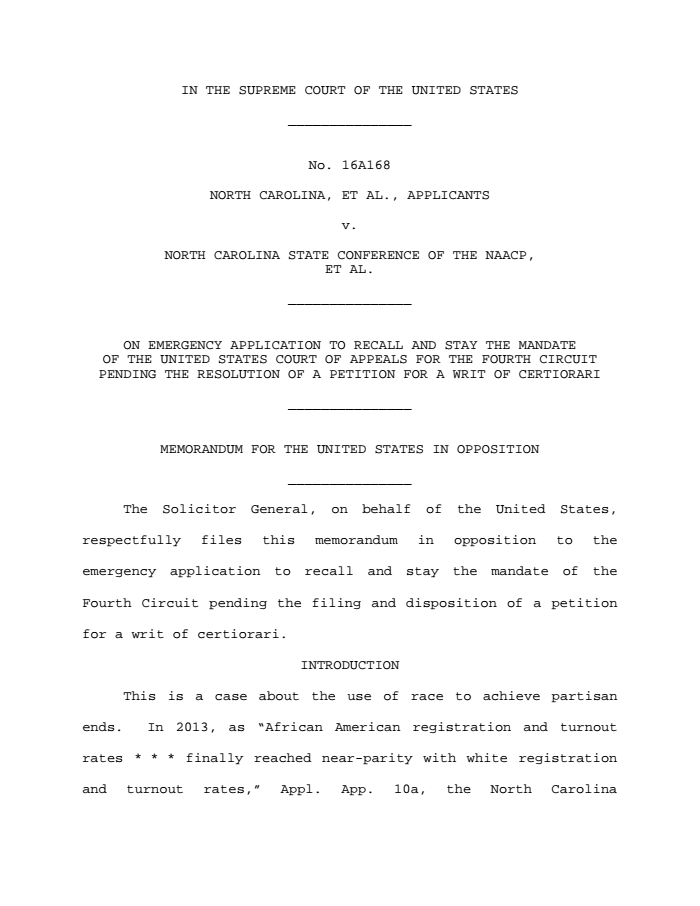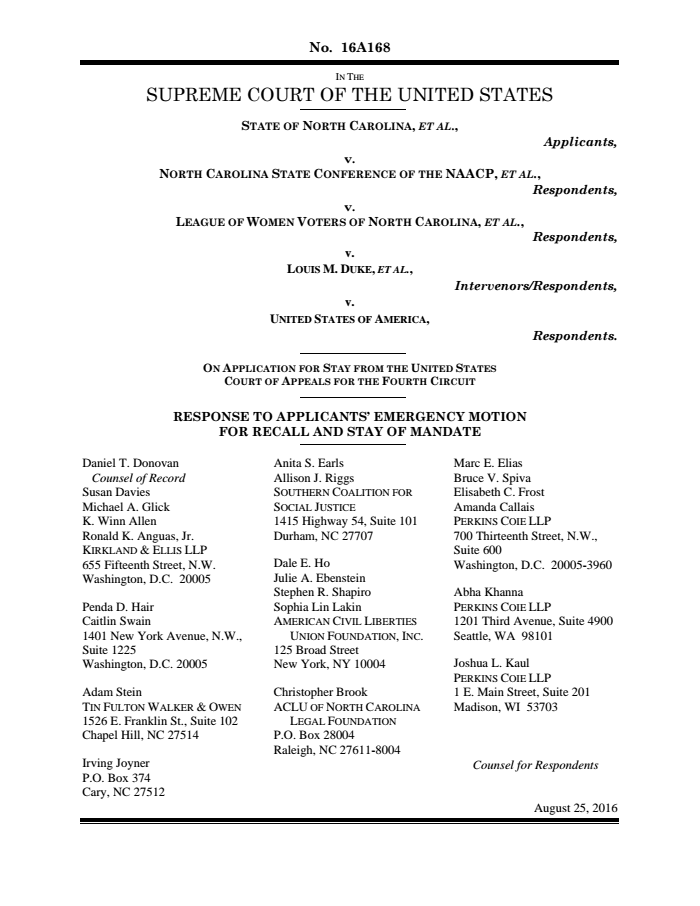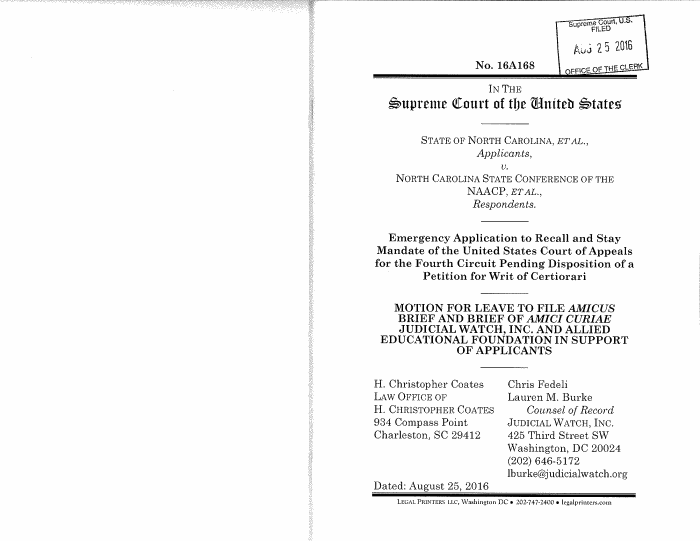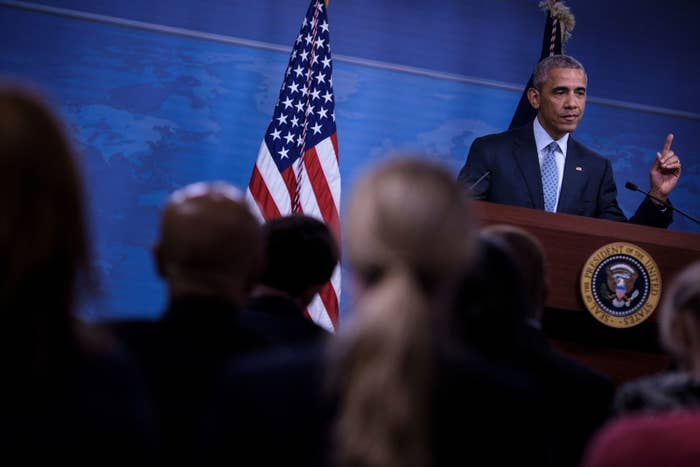
In a filing at the Supreme Court on Thursday, the Obama administration urged the Supreme Court to keep in place a federal appeals court ruling that struck down a series of voting restrictions, including a voter ID law, passed in North Carolina.
As it stands, the law — which contains five voting restrictions struck down by the 4th Circuit Court of Appeals — cannot be enforced for this election.
Among the provisions in the law that the appeals court has ordered the state not to enforce are limits on the type of photo ID required for voting; reductions to the amount of early voting in the state; and elimination of same-day registration, out-of-precinct provisional voting, and preregistration that allowed 16- and 17-year-olds to indicate an intent to register when they turned 18.
The plaintiffs in the lawsuits also urged the Supreme Court on Thursday to keep the ruling in effect for this election.
This past week, North Carolina Gov. Pat McCrory filed a request at the Supreme Court, asking that parts of the 4th Circuit's ruling be put on hold pending its request for the Supreme Court to hear an appeal of the ruling and so those parts of the law — the voter ID provision, the early voting reduction, and the elimination of preregistration — can be enforced during this election.
The governor's lawyers argued that there is a "reasonable probability" the justices would hear the appeal of the case and reverse the 4th Circuit's decision. This is so, the state argued, because it is an "extraordinary decision" that happened "[m]ere months" before the presidential election.
Specifically, McCrory argued that the court of appeals "invalidated several provisions of North Carolina election law as intentionally discriminatory" despite the district court's finding that "those provisions will not actually have a discriminatory impact on minority voters."
The Obama administration countered on Thursday that "once an electoral law has been found to be racially discriminatory, and injunctive relief has been found to be necessary to remedy that discrimination, the normal rule is that the operation of the law must be suspended. Failing to follow that general rule here would inflict irreparable injury on minority voters."
Highlighting the "[s]eventeen days" it took for McCrory to file the request at the Supreme Court, the plaintiffs, in their brief, adding, "But in the nearly four weeks that have now passed since the Fourth Circuit’s decision, the State has already taken a number of critical remedial steps to implement the Fourth Circuit’s decision."
The request, directed to Chief Justice John Roberts as the circuit justice for the 4th Circuit, likely will now be considered by the full court. The court gives no timeline as to when it will issue a ruling on the request.
[Update, 5:20 p.m.: Later on Thursday, Judicial Watch, along with the Allied Educational Foundation, requested to file an amicus curiae, or friend of the court, brief supporting McCrory's request before the Supreme Court.]

